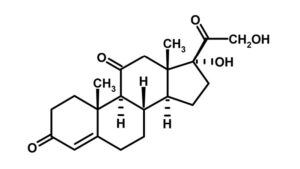Two project proposals win the ideas competition “Ideenwettbewerb of the Deutschen Rheumastiftung”
Congratulations to Lisa Budzinski, Alexandra Damerau and Timo Gaber on winning the ideas competition “Ideenwettbewerb of the Deutschen Rheumastiftung”! Lisa Budzinski is PhD student from Prof. Hyun-Dong Chang’s group at the DRFZ and impressed the selection committee with her project on “Individual diagnostics for Sjögren’s syndrome via the microflora”. The two colleagues from the DRFZ Liaison Group of Prof. Frank Buttgereit from Charité, Alexandra Damerau, PhD student, and Dr. rer nat. Timo Gaber, scientist, also impressed the jury with their project “Pathological metabolism of synovial fibroblasts as a driver of joint diseases and target for new therapies”.
The annual prize awarded by the Deutsche Rheumastiftung is endowed with 2,500 Euros and aims to promote creative scientific ideas in the field of rheumatology. Lisa was awarded the prize on 12 November 2021 during a festive event organised by the Deutsche Rheumaliga e.V.
Sjögren’s syndrome is an inflammatory rheumatic autoimmune disease that primarily affects the salivary and lacrimal glands, which are attacked by the immune system. This leads to dehydration of the eyes, nose and mouth. The oral flora or the microflora of the eyes and nose could play an important role in this because the body’s immune reaction is possibly directed against its own bacteria on the mucous membranes.
As part of her PhD project, Lisa will analyse the mouth, eye and nose microbiota of patients with the help of so-called microbiota cytometry. Microbiota cytometry, which was co-developed by the DRFZ and further optimised by Lisa herself, can be used to determine changes in the bacterial flora at the level of individual bacterias. The idea behind Lisa’s project is that she can use this technology to create an individual microbiota fingerprint for Sjögren’s syndrome patients and then look for patterns of similarities or differences between them and healthy controls. The long-term goal is to use mircobiota cytometry to diagnose Sjögren’s syndrome, predict the course of the disease and possibly even determine the likelihood of success or failure of therapy.
Lisa has been working on her doctoral thesis project for three years in the Schwiete Laboratory for Microbiota and Inflammation under the direction of Prof. Dr. Hyun-Dong Chang. In 2011, Prof. Chang was the first prize winner of the “Ideenwettbewerb of the Deutschen Rheumastiftung” with his concept “Erasing Rheumatic Memory” to make rheumatic diseases curable.
More of Lisa:
Osteoarthritis (OA) is considered the most common joint disease in the world, affecting more than 500 million people worldwide as early as 2019 and occurring prevalently in older age. Traditionally, due to the relative lack of neutrophilic granulocytes in the synovial fluid (synovium) and the lack of systemic manifestation of inflammation, OA has been classified as a non-inflammatory joint disease. However, in recent years, scientific focus has increasingly turned to the importance of the inflammatory synovial membrane (synovitis) in OA pathogenesis. Consequently, fibroblast-like type B synoviocytes (FLS), which maintain the structural and dynamic integrity of joints under physiological conditions, have been identified as key mediators of degenerative and inflammatory processes of OA. Recent findings have shown that cellular glucose metabolism and glycolytic intermediates shape the FLS phenotype in arthritides such as OA and rheumatoid arthritis (RA), contribute to disease progression, and thus provide targets for novel therapies.
Alexandra Damerau and Dr. rer. nat. Timo Gaber hypothesize that arthritides such as osteoarthritis are characterized by a metabolic imbalance of synovial fibroblasts. They aim to exploit this metabolic pathological phenotype, which acts as a driver of joint disease, to identify and validate novel diagnostically important molecules as well as potential targets for innovative disease-modifying drugs. The development of such anti-inflammatory metabolically active disease-modifying drugs would revolutionize the therapy of a wide variety of arthritides.
Alexandra Damerau has been developing complex 3D in vitro models for simulating musculoskeletal diseases since 2018 as a PhD student in the liaison group of Prof. Dr. med. Frank Buttgereit together with Dr. rer. nat. Timo Gaber. Their main interest is the metabolic changes of immune cells and synovial fibroblasts and their impact on the pathogenesis of RA and OA.
More about Alexandra:
- Winner Bionnale Speed Lecture Award 2018
- Lush Prize Winner 2018 supporting animal-free testing: Young Researcher – Rest of the World

 Deutsch
Deutsch
